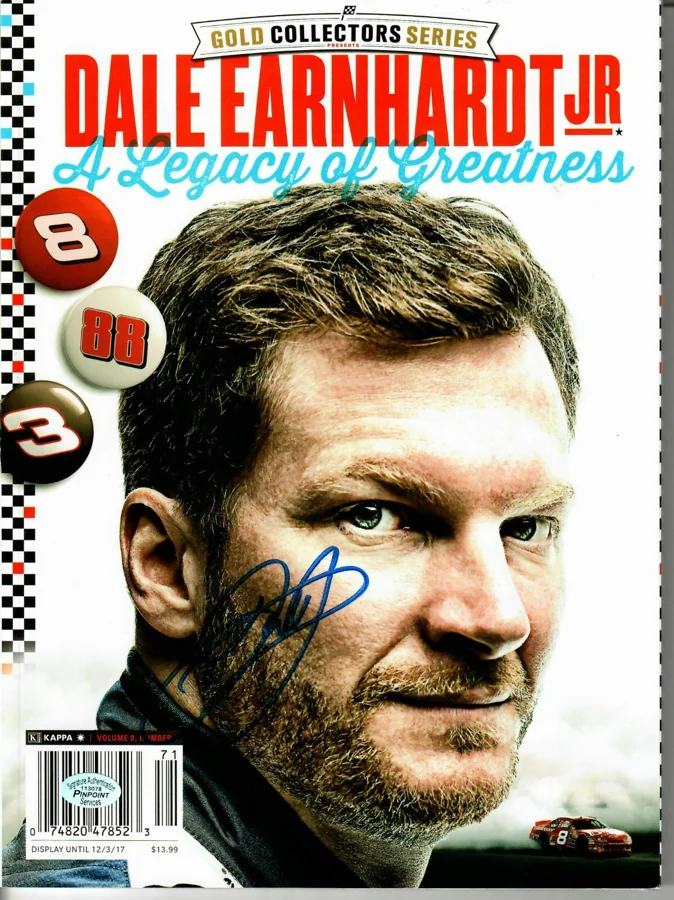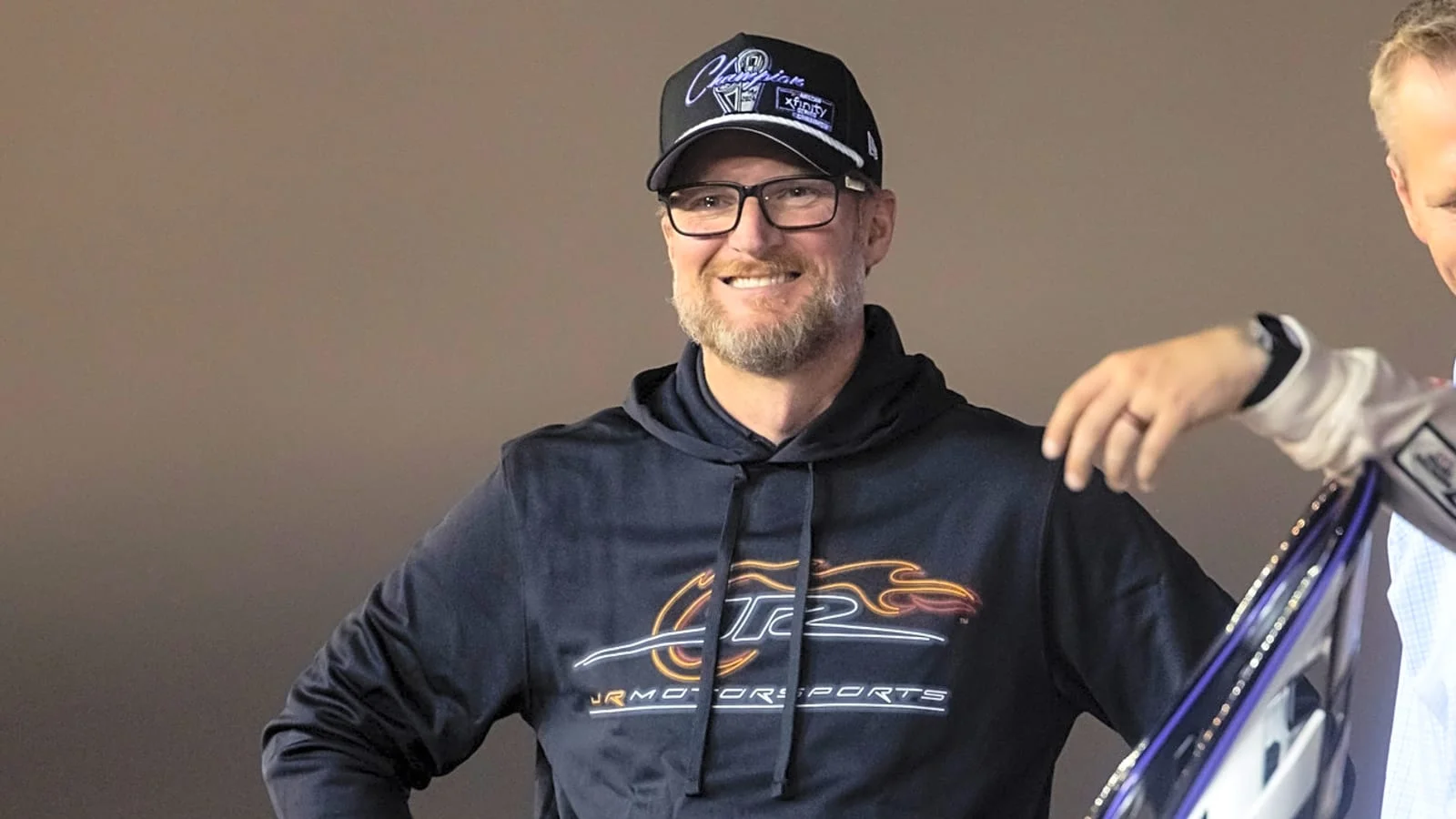Dale Earnhardt Jr. closely followed the recent exchange between Ty Gibbs and race strategist Chris Gabehart during the NASCAR Cup Series event at Watkins Glen, a moment that put the spotlight on high-stakes communication between driver and team. The conversation, broadcast on the radio, reflected the emotional turbulence capable of shaping both immediate race results and a driver’s development—an insight underscored by longtime competitor Earnhardt Jr., who sees this dynamic as crucial for future success in NASCAR.
The lead-up to this confrontation unfolded as Gibbs, racing the No. 54 car, became frustrated with his strategy and vocalized his concerns over the team radio, a scenario not uncommon in the heated environment of motorsport competition. Notably, Gibbs remarked,
“We’re f*cked right now, so we’ve got to do something different,”
as reported by Steven Taranto of CBS Sports, signaling his desperation and dissatisfaction mid-race.
Inside the Team Radio Dispute
Chris Gabehart, serving dual roles as both Gibbs’ strategist and Joe Gibbs Racing’s competition director, quickly responded on the radio, challenging Gibbs’ perspective with a pointed reply. Gabehart said,
“Well, I’m sure you’ve got a real good understanding of that from inside the car,”
before adding,
“So you can call the strategy if you want or we can keep rolling. But I [would] do the best I could to go as fast as I can.”
This exchange captured the raw pressure drivers and team leaders face when instant decisions and strong personalities collide at high speeds.
The interaction drew mixed responses from racing fans and analysts. While some were critical of Ty Gibbs’ reaction, Earnhardt Jr. offered a different perspective, highlighting how essential it is for young drivers to have strong leadership during tough times. According to Earnhardt Jr.,

“This is what Ty Gibbs needs,”
emphasizing how Gabehart’s guidance is meant to mentor rather than simply control. Earnhardt Jr. elaborated that he’s personally experienced those same moments of distress and disconnection in the car—where the severity of the situation feels obvious to the driver but invisible to the team. He stated,
“You need a person on the radio that tells you, ‘We’re all here to help you man. We’re not here to argue.’ I don’t know anyone better suited for that person, to sort of get Ty back into the game, than Gabehart. So, I thought it was refreshing.”
Lessons from Earnhardt Jr.’s NASCAR Career
The drama stirred Earnhardt Jr. to reflect on his own experiences as a driver, where having the right crew chief made a measurable difference in managing intense emotions. He credited Tony Eury Sr. for being that person who set boundaries and enforced accountability, noting,
“I was lucky that I had Tony Sr. to keep my ass in line, and not let me get away with running my mouth and being a little shit,”
recalling the necessity of discipline in tough moments. Earnhardt Jr. added,
“… Tony Sr. was that guy for me, to basically say, ‘Shut the f up, buckle down. Quit doing what the f you’re doing. It’s detrimental. It’s not helping.’ I’m thankful for that. If he’d not been the guardrail, I would’ve abused all of the lenience, being the son of the team owner, even after Dad had passed away, I still had leeway that no one else at the company possessed and benefitted from.”
His comments offered a candid window into the complexities of balancing talent with guidance within the racing world.
Why Mentorship and Tension Matter for Driver Growth
Earnhardt Jr. advised that heated exchanges like those between Gibbs and Gabehart aren’t signs of dysfunction but are, in fact, indicative of growth and potential. He likened Gabehart’s mentorship approach to the structure he once benefited from, pointing out that having someone to reign in a driver’s frustrations can be the difference between wasted talent and championship performance.
While the Watkins Glen incident may have captured headlines, Earnhardt Jr. dismissed the gravity of the confrontation, saying he remains confident in Gibbs’ ability to compete at the highest level.
“Ty Gibbs is extremely talented. He’s got a chance to really get it going and do it in Cup. If it happens, it’ll happen because of Gabehart,”
he predicted, focusing on the essential role that mental resilience and strong support systems play in achieving lasting success.
“Not so much making his cars fast, but getting his head right. … I think it works.”
This emotional episode at Watkins Glen, amplified by the Dale Earnhardt Jr. on Ty Gibbs radio dynamic, underscores how moments of conflict within high-pressure racing teams often become catalysts for development rather than setbacks. As NASCAR seasons advance, the partnership between Gibbs and Gabehart will be one to watch, as these turbulent encounters could lay the groundwork for future victories and maturity on and off the track.
